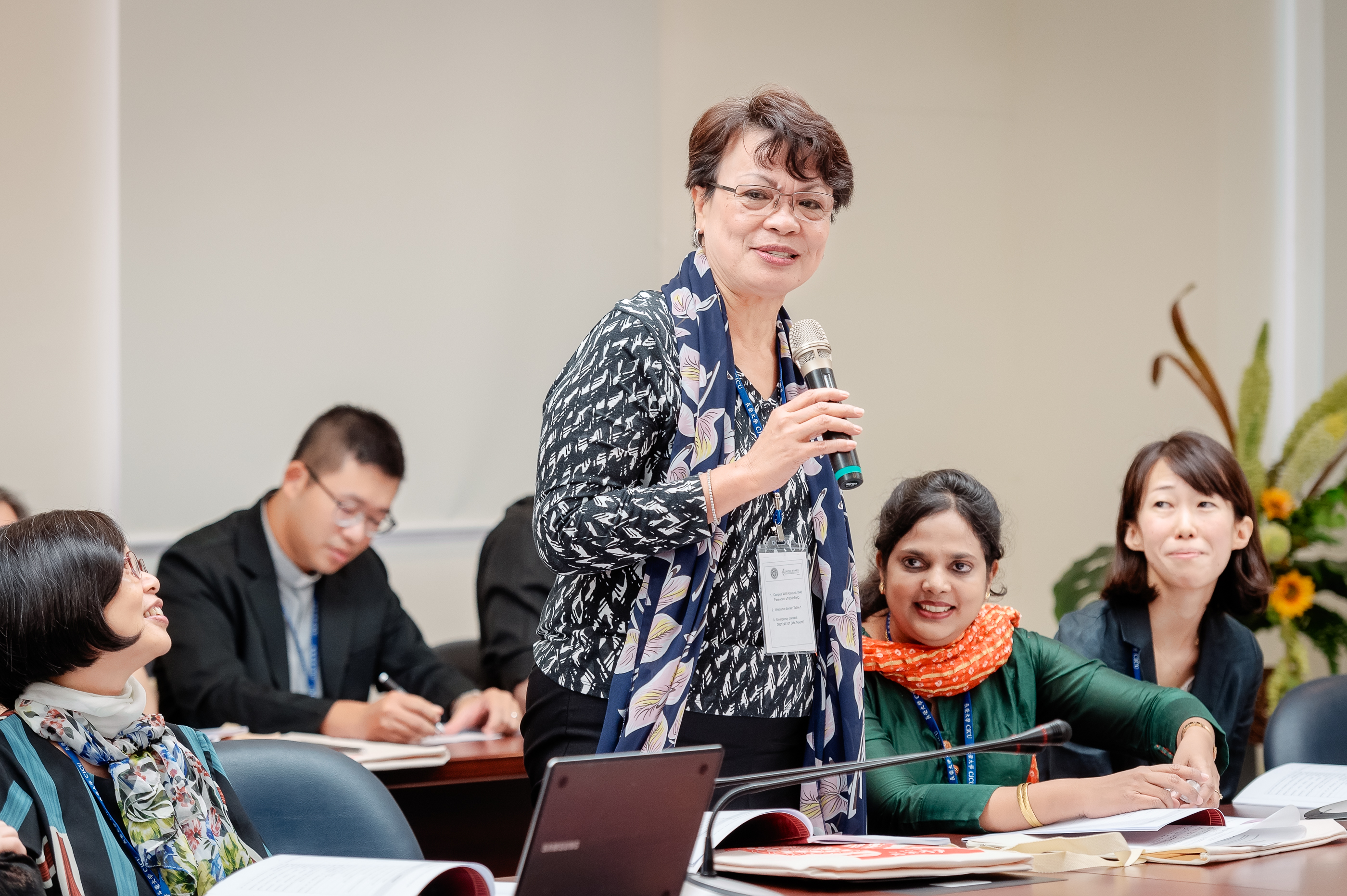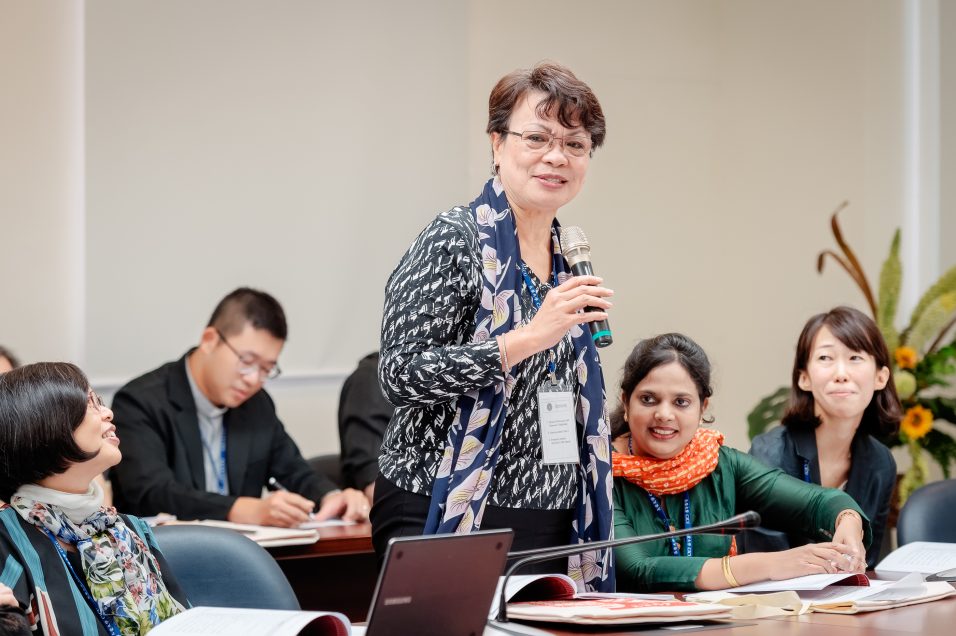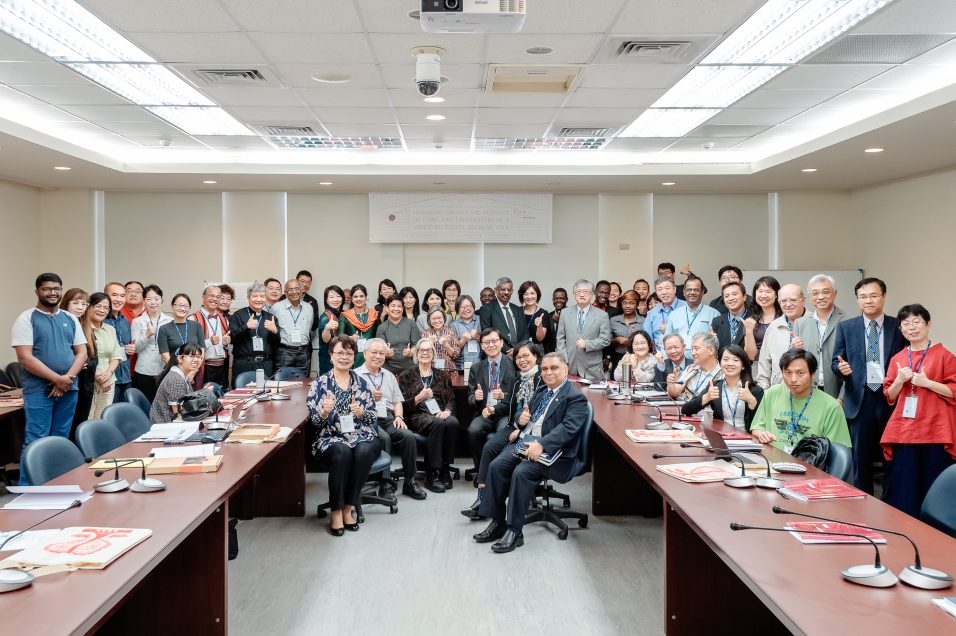
Pres. McCann presents paper at TaiCUCA international consultation
 “Christian universities have a special charge: to train the next generation of leaders who must care for the earth and the creatures on it,” Pres. McCann told participants of the international consultation on re-visioning the role and relevance of Christian universities in Asia convened last October by the Taiwan Christian Universities and Colleges Alliance (TaiCUCA) at Chang Jung Christian University.
“Christian universities have a special charge: to train the next generation of leaders who must care for the earth and the creatures on it,” Pres. McCann told participants of the international consultation on re-visioning the role and relevance of Christian universities in Asia convened last October by the Taiwan Christian Universities and Colleges Alliance (TaiCUCA) at Chang Jung Christian University.
TaiCUCA is an alliance of Christian universities in Taiwan whose vision is to enact the Christian faith or to propagate the Christian spirit. It serves as the link between the Association of Christian Universities and Colleges in Asia (ACUCA) and its member universities in Taiwan. ACUCA is a community of Christian institutions of higher learning in Asia which work closely together to benefit each other as well as the societies in which they exist. Dr. McCann is the incumbent president of ACUCA.
Speaking on the topic “Role of Christian Universities in the Context of Ecological Disaster, Growth of Poverty, and Health Crisis,” Dr. McCann pointed out the need for Christian universities to extend their Christian mission in demonstrating and practicing social responsibility. She said higher educational institutions anchored on the Christian faith must re-examine their strategies to meet the needs of current conditions.
“Now more than ever, the threats of ecological disaster, increasing poverty, and the health crisis not only have escalated, but also reveal themselves to be interrelated,” said Pres. McCann, adding that while evidence and scientific data on these issues have increased, ‘targeted and collective responses’ to them are still lacking.
Part of the Christian commitment, said McCann, is the commitment to stewardship of the earth as a “common home,” which means social issues must be addressed by universities through their values, institutional practices, teaching methods, and curricula.
McCann shared SU’s own strategies and approaches as examples of how universities can meld social responsibility with education, citing the university’s curricular programs, research agenda, and community extension projects through which it continues to meet its vision of cultivating “quality Christian education committed to total human development for the well-being of the society and environment.”
Dr. McCann concluded by exhorting the presidents of TaiCUCA member universities toward an integrative approach to higher education that is responsive to the needs of the times. “We (the Christian universities) can be the agency to put into action the mandates bestowed on Christian institutions…through our programs and services characterized by whole-person education, service-learning, and education that aim to prosper all human beings and God’s creations, we can become the eyes, hands, feet that constitute, as it were, the body of Christ,” she said in closing.
 Other presenters at the international consultation were Dr. Judith A. Berling, chair of the United Board for Christian Higher Education in Asia (UBCHEA), who discussed “Christian Presences in Higher Education, History, Objectives, Challenges;” Dr. Angela Wai Ching, UBCHEA vice president for programs, on “Higher Education in Asia, Context, Challenges and Promises;” Rev. Tabita Kartika Christiani, Duta Wacana University, Indonesia, on “Meaning of Christian presence in Higher Education within the context of Religious Plurality – Islamic context;” Prof. Chao-Chen Lin, National Cheng Kung University Taiwan, on “Meaning of Christian presence in Higher Education within the context of Religious Plurality;” Rev. Prof. Thomas John, President, Union Christian College, India, on “Death of Mission Schools? Towards a Christian Perspective of Education in the era of Commoditization of Education under-neoliberalism;” Chul Chun, Assistant Professor, Department of Theology, Hanshin University, Korea, on “Negotiating Christian truth claims in scientific society.”
Other presenters at the international consultation were Dr. Judith A. Berling, chair of the United Board for Christian Higher Education in Asia (UBCHEA), who discussed “Christian Presences in Higher Education, History, Objectives, Challenges;” Dr. Angela Wai Ching, UBCHEA vice president for programs, on “Higher Education in Asia, Context, Challenges and Promises;” Rev. Tabita Kartika Christiani, Duta Wacana University, Indonesia, on “Meaning of Christian presence in Higher Education within the context of Religious Plurality – Islamic context;” Prof. Chao-Chen Lin, National Cheng Kung University Taiwan, on “Meaning of Christian presence in Higher Education within the context of Religious Plurality;” Rev. Prof. Thomas John, President, Union Christian College, India, on “Death of Mission Schools? Towards a Christian Perspective of Education in the era of Commoditization of Education under-neoliberalism;” Chul Chun, Assistant Professor, Department of Theology, Hanshin University, Korea, on “Negotiating Christian truth claims in scientific society.”
Click here to read Dr. McCann’s paper.


